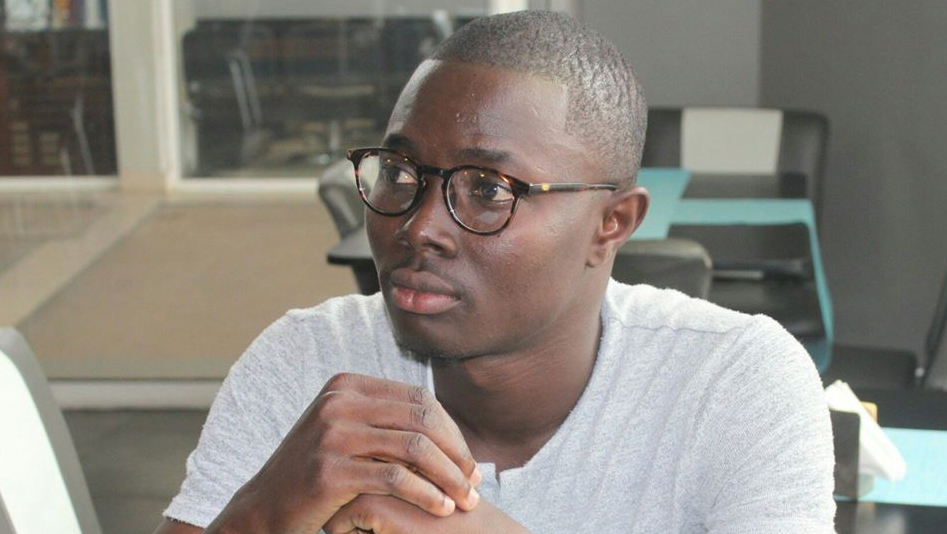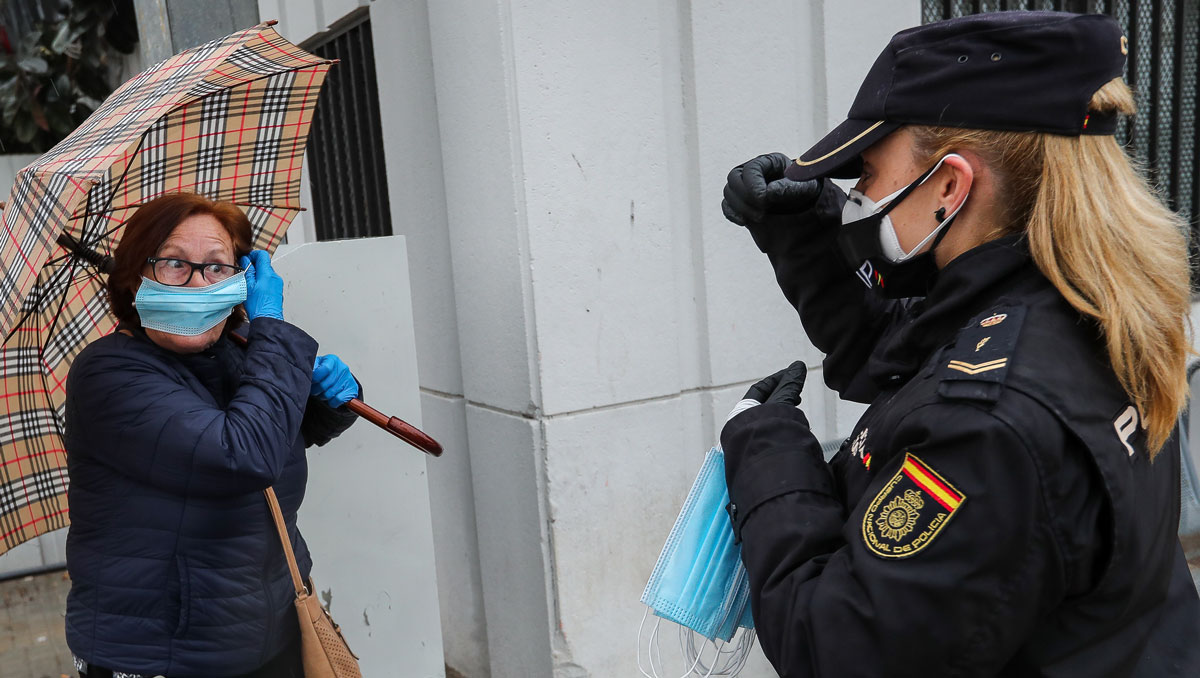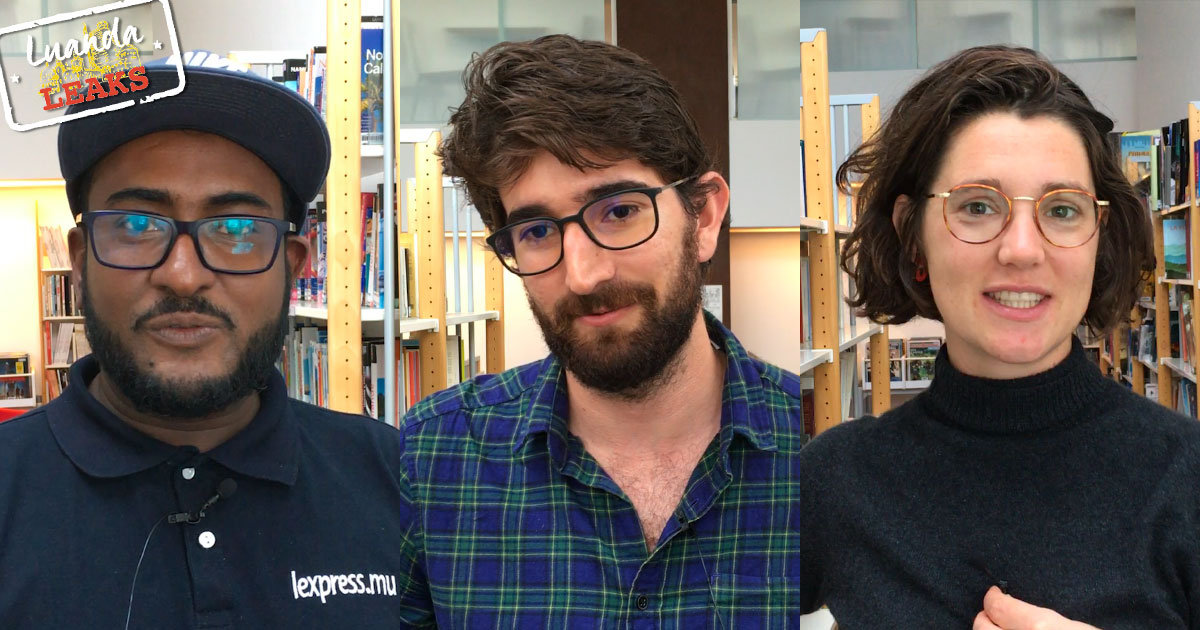Journalists are scrambling to keep communities informed in the face of obstruction, intimidation and censorship as the novel coronavirus spreads across the planet.
Hostile leaders. Hidden data. Heavy job losses. Hefty pay cuts — and imminent risks to reporters’ own health are posing unprecedented challenges to fact gathering.
To mark World Press Freedom Day, we asked our global network of reporters to share with you the unvarnished realities of their lives.
In this time of international crisis, our mission to produce the world’s most important stories with journalists in more than 90 countries is more vital than ever.
What is the biggest challenge you face in your reporting?
Stefan Melichar (Austria)
The biggest challenge – as for many other journalists in commercial media – is the economic situation, which was not good before the coronavirus crisis and has now become even worse. Investigative reporting requires time and resources – and the chance to work on promising leads regardless if they might turn out to be dead ends. Newsrooms have been shrinking for years.
The economic fallout of the coronavirus now leads to further severe cost-cutting measures. If these are not fully taken back after the pandemic, investigative journalism could come under a lot more pressure. Risks are high that stories, which are important, but not so easy to do, will stay untold.
Follow Stefan on Twitter.
Alejandra Xanic and Marcela Turati (Mexico)
First, we need to understand how to cover COVID-19 in a secure way and what we need to cover as we are not a traditional news media, but a journalistic investigative center.
There is also the challenge of obtaining information currently when government sources are not providing it. There are many complaints about hidden data and scientific debates about if things are being done correctly in Mexico or not.
Follow Alejandra Xanic and Marcela Turati on Twitter.
When we are investigating, it’s impossible to access even the most basic information because we are seen as squeaky wheels or spoilsports.
– Anderson Diedri
Roman Anin (Russia)
I think there are two big challenges:
- We – investigative reporters – are used to producing long stories, which take a lot of time. But COVID-19 demands us to react fast. We need to investigate with the speed of news reporters. And that’s hard.
- Where do we get reliable data about the number of deaths? We all believe our governments but in such times it looks like there are not many other reliable sources. And an additional difficulty is that even sources you have developed inside the government – you can’t meet them during the quarantine.
Anderson Diedri (Côte d’Ivoire)
One of the biggest challenges is accessing official information. Officials are happy to use the media when they want to manipulate information for their own ends. But when we are investigating, it’s impossible to access even the most basic information because we are seen as squeaky wheels or spoilsports.
The other challenge is resources. The number of journalists has shrunk, but the workload has increased: corruption, graft, conflicts of interest, of course, but also fake news and its impact on our democracies, which are often fragile in Africa, as we are seeing today with COVID-19.
Follow Anderson on Twitter.

Aidila Razak (Malaysia)
Getting timely information and data. We built this page to track the pandemic because the data was released in dribs and drabs and we couldn’t see the true picture. But maintaining it now is such a pain because the data release is inconsistent.
Secondly, we are facing both the pandemic and the aftermath of a political coup that happened just before the second wave of infections. So, it is a new and hostile government. Where before we had access to all government press conferences, now it is only open to two outlets – the national state broadcaster and national newswire. This means we cannot hold the government to account.
We also do not have a direct channel to seek information. For the first two weeks of the lockdown, the information release was in such a mess that we couldn’t even find out if people can go out to jog or not. One surgeon, believing he could, was handcuffed and fined as a result. (After that it was clear, no you can’t go out to jog.)
The only press conference that is open to all right now is the one held daily by the Health Ministry director-general to update on infections. This is crucial and we are relieved that as a bureaucrat, he has remained independent and has not changed the policy on information release.
However, to get the detailed data on the rate of infection etc, we had previously relied on the Health Minister’s press secretary. With the change of government, we now have a new Health Minister and a virtually ineffective press secretary. That channel of information is now closed.
Thirdly, we are also facing a lot of hostility online which makes it difficult to do our jobs in this lockdown period. This is because when we could go out and talk to people before, we now have to rely on social media.
We are also under pressure to be extra careful to the brink of self-censorship sometimes because in this period, nationalism is at a high so any form of critical reporting on the government is construed as an attack. Recently, a colleague was questioned by police about an article she wrote about how university students stranded at their dorms were told to practice and put together a dance performance for a visiting minister who basically visited for a photo op. The story was based on verified information from sources within the university. A police report has since been lodged (we don’t know by whom) for alleged misreporting, and my colleague is under pressure to reveal her source.
Read Aidila Razak‘s profile and follow her on Twitter.
Anuška Delić (Slovenia)
In Slovenia, our challenge is twofold — it’s the pandemic combined with a new government where the chief party holds a deep resentment for the free, upstanding and thorough press. Thus, the already high level of online smear campaigns on social media and in media controlled by the ruling party against [my news organization] Oštro and its journalists has significantly increased. But an even more sinister campaign is taking place as I write this — the governmental trolling of the public broadcaster Radiotelevision Slovenia and its reporters.
Read Delić’s profile and follow her on Twitter.
Stevan Dojčinović (Serbia)
Most of the challenges that journalists face in Serbia, including me, are coming from the government which is putting pressure on reporters on a daily basis. The Serbian government, being corrupt and tied to organized crime, does not like investigative reporting or independent reporting at all so it uses different ways to fight against journalists – pro-government media are running a smear campaign against anyone who exposes crime and corruption. Secret service is constantly spying on journalists. Media who are not loyal to the government gets visits from tax inspectors. Government officials are suing journalists and there were even recent cases of reporters getting arrested.
Journalists in Serbia receive threats often and prosecution, which is under control of the government, do not bother to investigate threats or attacks on journalists. Besides their regular work, journalists must spend a lot of time dealing with security. Since all this bad environment for work is here for a long time, journalists are under big psychological pressure. There is also fierce revenge against whistleblowers and journalist sources – when they are discovered, the government fires them or even arrests them. Last, but not least, the government is killing transparency and it is harder and harder to get even some basic information from government institutions.
Follow Dojčinović on Twitter.
Alberto Arellano (Chile)
Without taking into account the current context (social outburst and pandemia of coronavirus), the principal challenge that I think we face as investigative journalists in Chile is knowing how to find, identify and present the new shapes corruption (public-private) and organized crime acquire to fulfill their objectives. Although the press has contributed to unveil corruption mechanisms, having even an impact in the new laws and regulations created to stop this kind of situation; organized groups or individuals have been finding new ways to violate the law.
New ways that are more sophisticated and harder to investigate.
The maxim “made the law, made the tramp” can be exemplified by the case of irregular financing of political campaigns in Chile. After years of public scandal, after several news stories that showed how private interests (business interests) funded political parties and politicians, a new law was enacted (April 2016). In 2018, several journalistic investigations exposed how one business group (informal neighborhood casinos) was able to violate the new regulation by using new strategies to fund some candidates that, if elected, could propose laws in their favor.
Read Arellano’s profile, and follow him on Twitter.
Andras Petho (Hungary)
Gaining access to public records and data has been getting harder. In most cases when you request data from the government they say no so you need to go to court and while usually, the courts rule in favor of transparency, this process can take months or even years. By the time you get the data, the story is often irrelevant.
At the same time, we’ve noticed that human sources, especially inside the government, are increasingly reluctant to give information. They are afraid of the repercussions or they just simply think that leaking information is not worthwhile, given that exposing wrongdoings hardly ever leads to direct consequences.
Read Petho’s profile and follow him on Twitter.
How do you feel about the future of journalism in your country?
Aidila Razak (Malaysia)
It feels like we are sliding very quickly to the repressive era, after a short respite under the Pakatan Harapan Government. Things were not perfect under Pakatan Harapan, but at least we had access and were not in constant fear of police action or being shut down.
It is a challenging time in which independent digital media have the opportunity to position themselves as reliable sources of information.
Francisca Skoknic
Simon Mkina (Tanzania)
The future of journalism in Tanzania is expected to be weaker than any recorded time in our history. This is because media houses have become so intimidated due to self-censorship. Many media organizations have chosen to become a loud trumpet of the regime, praising each and everything done by the state. It is true that the current government is squeezing media freedom, but media houses should know there is no government that will all allow that freedom to exist unless journalists are united.
Follow Simon Mkina on Twitter.
Francisca Skoknic (Chile)
We are in a moment that is particularly difficult because of the collapse of advertising revenue due to COVID-19. The credibility of the media has fallen, while social media networks gain ground as information channels. It is a challenging time in which independent digital media have the opportunity to position themselves as reliable sources of information.
Read Skoknic’s profile and follow her on Twitter.
Guilherme Amado (Brazil)
I am pessimistic about the future of press freedom in my country, at least during the government of Jair Bolsonaro. The current president doesn’t respect journalists. Actually, he harasses many of us in different ways. In interviews, he insults those who make tough questions. Through his social media, he incites people to attack professionals who are just reporting facts that he would prefer to maintain secret. There are important institutions that are working properly, but the lack of attitude of some of them, like the Office of the Prosecutor General, and many congressmen, makes everything more complicated.
Read Amado’s profile and follow him on Twitter.
Andras Petho (Hungary)
In Hungary, journalists have had a rough decade under prime minister Viktor Orbán’s increasingly authoritarian rule. He cracked down on independent outlets while at the same time he has built a powerful propaganda machine that supports him unconditionally. I’m afraid that the COVID-19 crisis will make things even worse. The already shaky financial legs of the remaining independent media can be crushed by the economic downturn. Several media companies already announced budget cuts and layoffs in recent weeks. What gives me a little hope is that there are also people who are willing to support journalism outlets. Direkt36, the organization I co-founded, is among those that are sustained mainly by their readers.

Mary Triny Zea (Panama)
The future of journalism in Panama is challenging. The economic crisis that is affecting traditional media will be deepened as a result of the pandemic. The layoffs of journalists have increased and in a small country like Panama it could mean editorial commitments with powerful economic groups that invest large sums of money in advertising and resources, which could affect even more the independence and the free press.
Read Mary Triny Zea’s profile and follow her on Twitter.
Marcos García Rey (Spain)
There are two ways to respond to this question: the quality of journalism and the restrictions of doing free journalism:
1. In Spain, newsrooms are increasingly becoming hostile to investigative or in-depth journalism. This type of journalism, that provides added value, is expensive, takes time and it is thorny for the socio-economic and political powers. It is also often a problem for editors to have investigative journalists in the newsroom because they deal with problematic topics. For these reasons, in Spain, the quality of journalism may decrease even more in the near future due to the economic crisis. The media bet more on breaking news, even though editors know they are offering a watery soup to the citizens. But, you know, watery soup is inexpensive, fast and does not cause stomach pains.
2. The COVID-19 pandemic is bringing about a serious economic and social crisis in many countries, including Spain. The central government, in my opinion, is deliberately strengthening state power. The problem is that there are members of the government who have a peculiar idea of what journalism and press freedom are.
Pablo Iglesias, a communist and Vice-President of the central government, argues that “journalism is like a weapon to be shot, period.” He does not believe that the media pluralism is an essential element for democracy. Iglesias argues that information is a fundamental right and “to the extent that a right becomes susceptible to commercialization and to being a private property then it becomes a privilege. Therefore, what attacks freedom of expression is that most of the media outlets are private. Even the fact that private media exist attacks freedom of expression, and this must be said openly.”
Consequently, the current Vice-President defends the models of public and state information developed by the governments of Argentina under the rule of the Kirchners, of Ecuador under Rafael Correa and of Venezuela under Hugo Chávez and Nicolás Maduro. On the other hand, on the occasion of the pandemic crisis, the statement of the Chief of Staff of the Civil Guard, José Manuel Santiago, stated in a press conference on April 19 that the security forces are working to combat negative information and thus “minimize the climate contrary to the management of the crisis by the government”. Both examples show how the current atmosphere to protect press freedom in Spain is not the best one, just the opposite.
Read García Rey’s profile and follow him on Twitter.
Anderson Diedri (Côte d’Ivoire)
We have a greater need than ever for journalists who shine a light on important subjects, but the ability of the media to do so is shrinking. Public and private news organizations have slashed the number of journalists. The growth of online media has helped create among readers a habit of journalism for free, which has led to a catering of sales of newspapers. State funding of the media ended two years ago. It’s a media crisis in Côte d’Ivoire, which is having a considerable impact on the development of quality journalism.
Roman Anin (Russia)
Independent journalism is dying in Russia. And not because of COVID-19 but because of Putin’s regime. His government is a more serious problem for the country than the virus.
Alberto Arellano (Chile)
I am optimistic, even though I recognize that investigative journalism is living very challenging times. Several independent media in Chile (CIPER, Interferencia, among others) are transitioning in a very decisive manner to a funding model based on its readers, so that they don’t compromise their independence through advertisement or donations from companies and business people. It is not easy. Traditional media (El Mercurio, La Tercera, Diario Financiero) already implemented paywalls to get access to their news, articles and stories. In the case of non-traditional media dedicated to investigative journalism, the challenge is greater in the middle of a culture (the Chilean) in which media readers are historically not used to pay for the digital content they consume.
However, I think that increasingly people/readers are realizing that quality journalism (that is expensive to do and is uncomfortable for power), is key to transparency, to strengthening democracy, and that it can also contribute to improving the quality of living of people, mainly the least favored by the system.



